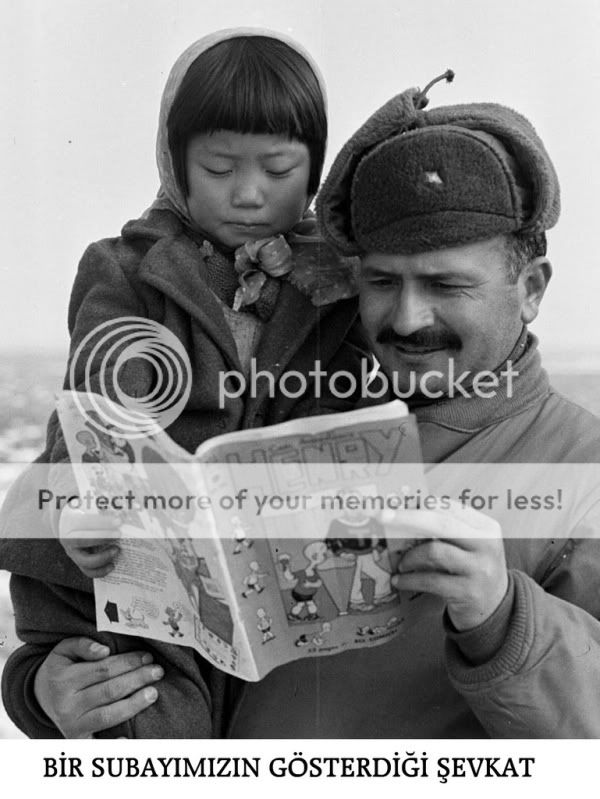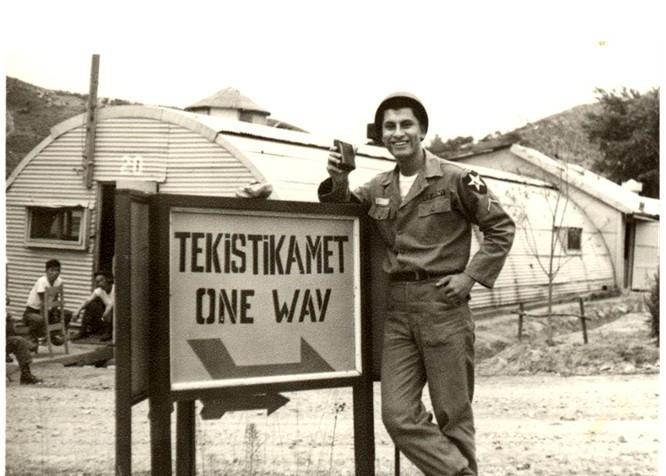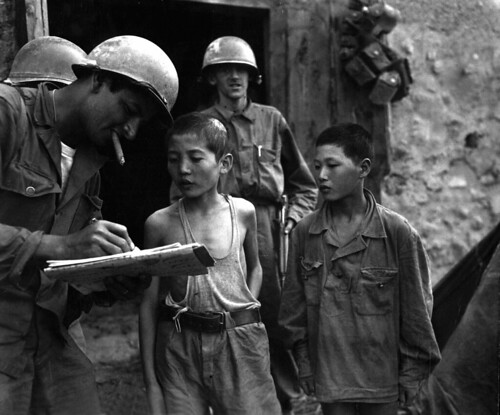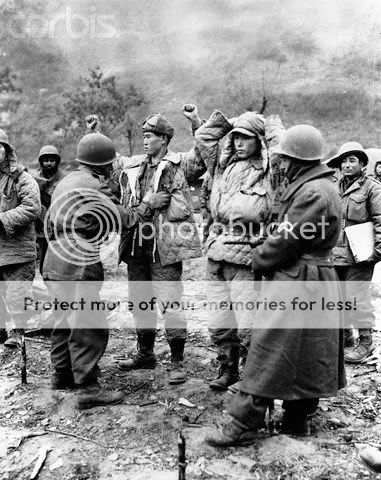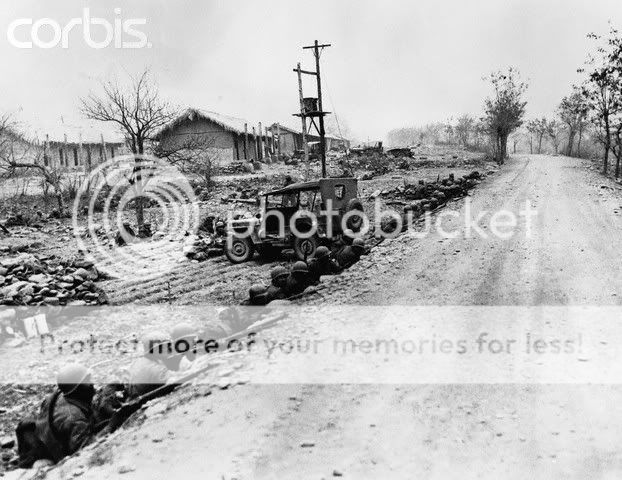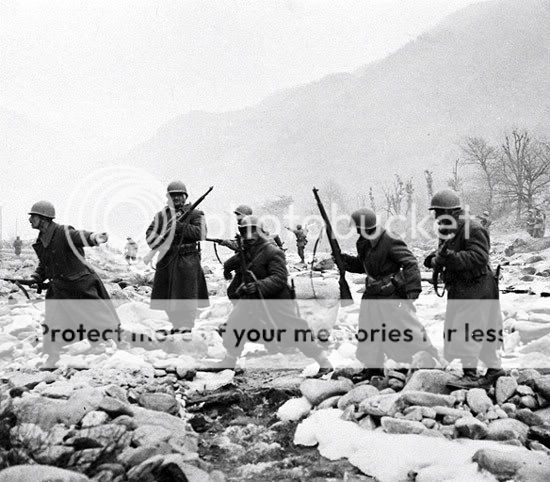We often hear about the Turkish population of 80 million and Turkey’s powerful armed forces, the second largest in NATO, after the United States. Sometimes things are quite different from what they seem to be. Especially in the case of the Turkish Army, one can easily say that the created impression is totally false. In fact it is a myth created by the Americans since the Korean War.
Quite often we become observers of reports and comments both in international bibliography, that present a totally overestimated and false impression, concerning the Turkish military performance. It is the outcome of a myth about the “fearsome” and “outstanding” Turkish Army, which has been skillfully or naively created on purpose, having as a result to totally alter the truth. It is a case that deliberately alters the historical past. In fact the truth knocks down the image of the “brave”, “fearless” and “skillful” Turkish soldier.
The myth’s start about the modern Turkish Armed Forces is identified during their first engagement with the enemy in the last 60 years. It took place during the Korean War, where it is totally revealed, that an almost useless military formation, achieved beyond its own will to create a whole legend about a supposed Turkish “art of war”.
In a typical book of a summary presentation of the Korean War, such as “The Korean War 1950-53” the reader can read the following:
“Although at peace since 1923, Turkish troops were generally considered the best of the smaller UN contingents; they fought well, especially in close combat; were steadfast in defense, and resolute as PoWs; and were well led”.
This paragraph includes as we will see all the parameters of the legend about the almost “superhuman” Turkish soldier who is good in every aspect, even when defeated and being captive.
The Greek reader is having a similar picture, reading the pages of “The military power of Turkey. A challenge for the Hellenic Security”:
“There is an old rumor, that the Turkish Soldier is particularly tough and battle reliable. This rumor was cultivated during the first years of the Ottoman age, the Gallipoli Battle and the participation of a Turkish brigade in the Korean War [...] For their combat action they were described [the Turks] by General McArthour as the “bravest of the brave”.
The obvious question that comes in mind, concerns the significant fluctuation in the Turkish battle-worthiness in the 20 years separating Korea and Cyprus. Perhaps after all no difference existed? Perhaps even in Korea the Turkish fighting level was as low as in Cyprus? Examining certain facts, we believe it proves, that reports like the ones preceded are not based on historical facts or studies, but constitute simple reproductions of impressions and generalized comments that are conceded with no limits for reasons concerning political expediencies or they just form fantasy creations originating from ignorance and illiteracy, in order to impress the ignorance.
THE TURKS IN KOREA
The Turkish Brigade arrived at the port of Pousan on 18 October 1950 and it was officially titled “Turkish Armed Forces Command”. The brigade’s body, consisted of the 241st Infantry Regiment including three Infantry Battalions, one Field Artillery Battalion, a Signals Platoon, a Pioneer Company, a Transportation Company, a Medical Company and an Ordnance Company. There was a total force of 5,455 men. Brigadier General Tahsin Yazici was the Commanding Officer. On 1 September 1951, the Turkish Brigade was replaced for the first time, after a staying period of 10 months in Korea having a new CO Brigadier General Sirri Acar. Replacements took place also on 30 July 1952 and 4 September 1953, while the final departure took place in May 1954. Those replacements concern likely the brigade in its total, since it seems that it was replaced every time by a fresh one, coming from Turkey.
When the Turks arrived at Korea, were poorly equipped, since their equipment was outdated in its total. The soldiers were wearing the British “battle-dress” uniform that was recently adopted by the Turkish Army, heavy military overcoats, British Mk2 helmets and individual leather-made webbing of German origin. Before enter the fighting in November, they just managed to get equipped with modern US arms and standard US M1943 clothing, which was not issued immediately. Gradually, the Turkish clothing and equipment was replaced with US made and especially the brigades that arrived later in Korea were totally issued with US material and arms.
It is astonishing to observe that, the Turkish myth, starts as soon as the Turks arrived in Korea. It is true, that during their arrival they were given a lot of publicity for a number of reasons that have to do mostly with the observer’s psychology and aim. It has to be taken into account, that during that time, Turks were more or less unknown to the American people and even more concerning their fighting skills. The Turkish Army had not fought since 1922, so an average observer, could form an opinion only through a rough review of its history. The fatal influence of the Ottoman Empire history and also from the First World War formed a picture of a “capable” and “brave” army with tough reputation. But this reputation is based mainly on slaughters and genocide’s of civilians or paramilitary formations, for which Turks are notorious to their neighbors. A third party observer who has not made further studies can not have a direct perception and naturally forms a wrong picture. In this way we have the first evidence who led to the creation of the Turkish myth.
James Stokesbury, obviously influenced, describes: “
Among the most prominent contributors, the Turks sent a much-respected infantry brigade, whose men were evidently uninterested in higher tactics or sophisticated military skills, but possessed much rugged courage and willingness to endure”.
(3) There are also historical reports that generate specific questions concerning their subjective dimension and also the degree of altering and overestimating the meaning of simple everyday ethos or procedures of an army:
“Turks were admired a lot for their unlimited toughness and resistance to the Chinese. The only traitor was silently murdered by his compatriots. When one of their men was sick, two of his colleagues were responsible for his survival”.(4)
A more realistic account of the truth, is given by the description of the Turkish image by
Clay Blair: “The Turks, commanded by Brigadier General Tahsin Yazici, had arrived in Korea like the Marines, in a blaze of publicity. With their colorful, flowing mustaches, swarthly complexions, and fierce demeanors, they gave war correspondents and others the impression they were very tough soldiers. The reality was that they were ill trained, ill led, and green to combat”.
(5)
Mike Michaelis, CO of the US 27th Infantry Regiment who fought in Korea, described in an elegant style the average Turkish soldier that arrived in Korea to fight:
“The Turks were commanded by an aged brigadier who had been a division commander at Gallipoli in 1916 fighting the British! He was highly respected, high up in the Turkish military establishment, and took a bust to brigadier to command the brigade. The average Turk soldier in the brigade came from the steppe country of Turkey, near Russia, had probably had only three or four years of school, was uprooted, moved to western Turkey, given a uniform, [a] rifle, and a little smattering of training, stuck on a ship, sailed ten thousand miles, then dumped off on a peninsula – ‘Korea, where’s that?’ – and told the enemy was up there someplace, go get him! The Turk soldier scratches his head and says, ‘What’s he done to me?’”(6)
The problem that the Allies would face with the Turks was easily understood having them arriving in Korea. Only a few of them, mainly officers were speaking English, while on the other hand no American was speaking Turkish. Therefore, the level of contact and communication between the Turkish Brigade and the IX Army Corps Headquarters where it was attached, was particularly poor up to non-existing, at least during the first stages.
Preserving Freedom in Korea
Turkish Soldiers against Chinese
Turkish Soldiers in Korea again








